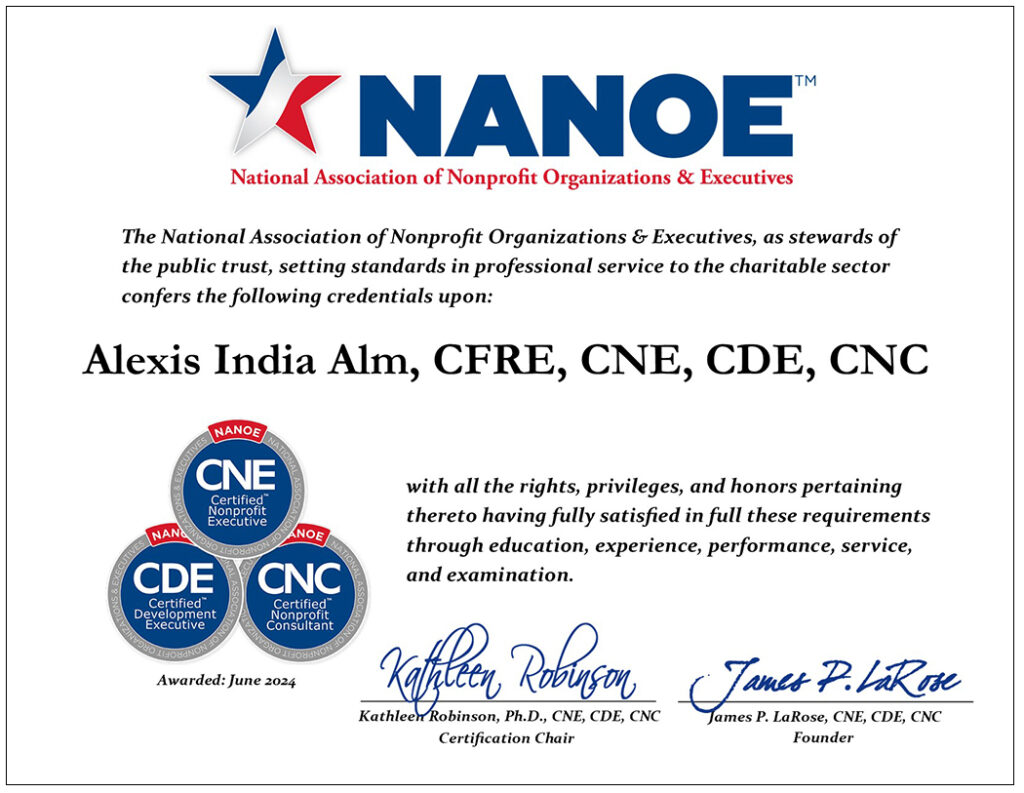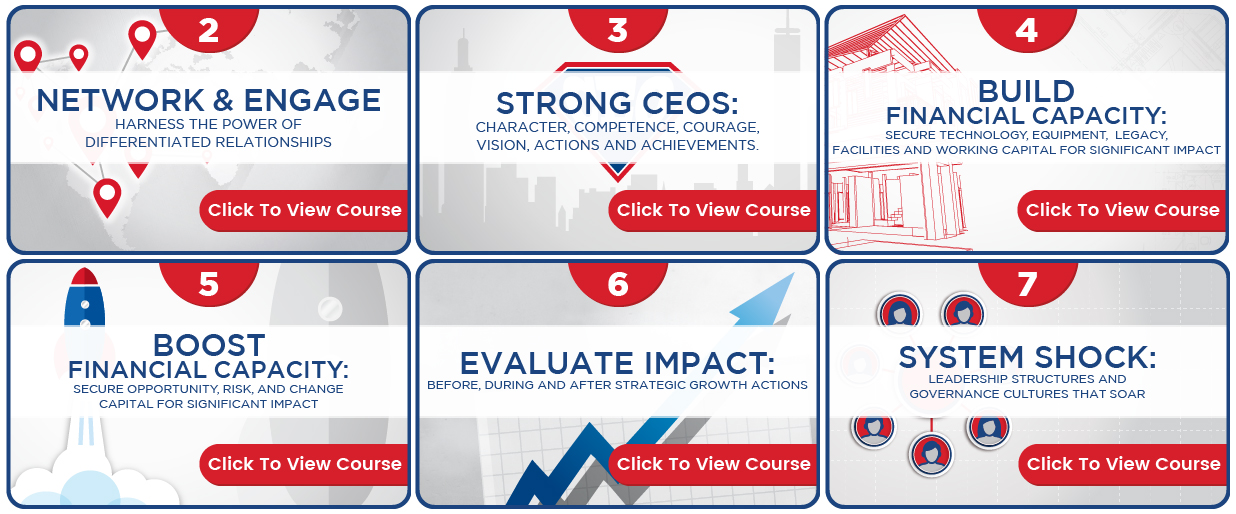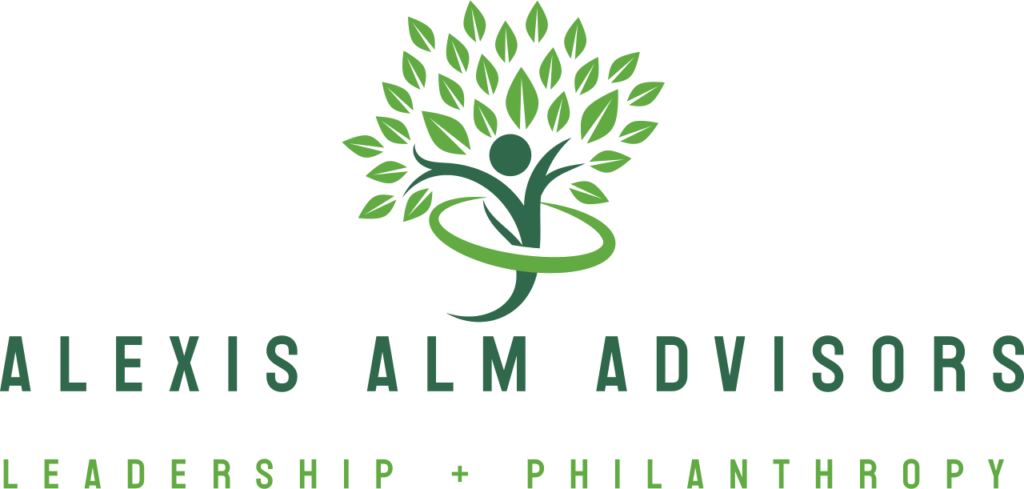Nonprofit Boards Are Broken for Good – New Film
June 11, 2024How to Leverage Technology to Streamline Nonprofit Finance
June 13, 2024CFRE vs. NANOE Credentials: Why I Have Both!

Alexis India Alm, CFRE, CNE, CDE & CNC
CFRE vs. NANOE Credentialing…What’s the Difference is Alexis India Alm’s take on industry credentialing organizations who serve the charitable sector. Here’s what this celebrated fundraising veteran has to share about her experiences in nonprofit continuing education:
I’m a champion of both CFRE and NANOE. My affiliations with these professional organizations demonstrate my commitment to lifetime learning and adult continuing education. I’ve spent my vocational career listening to our industry leaders and embracing their content offerings. I’ve held the CFRE credential for two decades and recently achieved NANOE’s CNE, CDE, CNC. I’ve immersed myself in the cultures of both nonprofits, have attended their conferences and spent significant time with their leaders.
Before we get started, I thought you’d should know that I’ve spent forty-years in nonprofit management and fundraising. I’m the founding principal of Alexis Alm Advisors, LLC and recently retired from four decades of service to our Nation’s disabilities community. I obtained my Certified Fund Raising Executive (CFRE®) certification in 2008 and am a recent past chair of CFRE’s Board of Directors.
Now that my bona fides have been established let me share with you why I hold both CFRE and CNE, CDE & CNC certifications:
With my thousands of hours of adult continuing education, multiple certifications, and commitment to CFRE you may be asking, “why NANOE?” This answer is a simple one. Because I needed it.

I’ve known about NANOE for years and one day decided to do a deep-dive to better understand their intended role in our industry. Before long, I came to understand that NANOE’s approach to nonprofit management is different. Their credentialing program ensures practitioners learn and apply the same free-market enterprise principles we know work in the for-profit sector at nonprofits. Piety is abandoned and a well run growing charitable enterprise emerges. Simply put, our sector is desperately in need of NANOE’s proven capacity-building method. Furthermore, NANOE credentials equip leaders beyond just fundraising. They tackle overall institution-wide administration as well as the art and science of nonprofit consulting.
CFRE vs. NANOE Credentials: Why I Have Both!
As CFRE’s recent board chair and an avid NANOE Champion, I’m in a unique position to compare these two programs. Here’s the areas I’ll review:
1. ADVANTAGES: What does each program offer?
2. AMPLITUDE: What is the scope of each credential?
3. AUTHORSHIP: Who designed these programs? What subject matter is covered?
4. ACCESSIBILITY: What ease-of-use structures have been created for participants?
5. AFFORDABILITY: How much do these programs cost?
6. ACHIEVABILITY: What do you have to do to succeed?
7. ASSOCIATION: Who oversees these programs?
8. AUTHENTICITY: Do you share their values?
CFRE stands for Certified Fund Raising Executive.
CNE stands for Certified Nonprofit Executive, CDE stands for Certified Development Executive and CNC stands for Certified Nonprofit Consultant. CNE, CDE, CNE are overseen by the National Association of Nonprofit Organizations & Executives (NANOE)
VISIT HERE OR PRESS CERTIFICATE BELOW TO LEARN EVERYTHING YOU NEED TO KNOW ABOUT NANOE CREDENTIALING

1. ADVANTAGES: What does each program offer?
Though both organizations provide a list of similar benefits I can personally attest that there are FIVE basic advantages both programs have to offer.
CFRE Advantages:
1. Participants use the designation CFRE after their name – Alexis Alm, CFRE
2. Participants have their education, experience and achievements cataloged.
3. Participants have their fundraising knowledge measured.
4. Participants receive a credential that enhances career opportunities.
5. Participants receive a certificate suitable for framing.
CNE, CDE, CNE Advantages:
1. Participants use the designation CNE, CDE, CNC after their name – Alexis Alm, CNE, CDE, CNC
2. Participants have their education, experience and achievements cataloged.
3. Participants are immersed in a learning experience that supercharges their ability to build financial capacity.
4. Participants receive a credential that enhances career opportunities.
5. Participants receive a certificate suitable for framing.
Distinct Advantages:
CFRE is accredited by ANSI (American National Standards Institute) which is favorable. However, some of CFRE’s source material and exam questions are outdated. CNE, CDE, & CNE are based on new sets of applied clinical research with a special emphasis on free-market enterprise principles. NANOE challenges the status quo by ensuring nonprofits prioritize cash acquisition.
2. AMPLITUDE: What is the scope of each credential?
CFRE Amplitude:
1. Fundraising Credential for Fundraising Professionals
CNE, CDE, CNC Amplitude:
1. CNE, capacity-building credential for Nonprofit Executives.
2. CDE, capacity-building credential for Fundraising Executives.
3. CNC, capacity-building credential for For-Profit Consultants.
VISIT HERE TO LEARN EVERYTHING YOU NEED TO KNOW ABOUT NANOE CREDENTIALING
3. AUTHORSHIP: Who designed these programs? What subject matter is covered?
CFRE Authorship:
The CFRE program was designed by nonprofit fundraisers, subject matter experts (SMEs), for-profit consultants and for-profit vendors and is based on current fundraising practices, ethical codes, and regulations dating back to 1980. The CFRE exam is divided into six sections:
1. Current and Prospective Donor Research
2. Securing the Gift
3. Relationship Building
4. Volunteer Involvement
5. Leadership and Management
6. Ethics, Accountability and Professionalism
CFRE exam is multiple-choice and contains 200 questions.
CNE, CDE, CNC Authorship:
CNE, CDE & CNC credentialing has been designed by academicians, doctoral candidates, subject matter experts (SMEs), volunteers, philanthropists and nonprofit executives within the past five years and is based on 1,100 pages of new empirical peer-reviewed capacity-building research compiled in New Guidelines For Tomorrow’s Nonprofit. New Guidelines for Nonprofits. This clinically researched work is presented in six sections and contains expansive sets of new information. New Guidelines are rationally organized and designed to serve practitioners committed to the future of nonprofits.
New Guidelines for Nonprofits is presented in six sections and is an expansive set of empirically investigated capacity-building research. New Guidelines are rationally organized and designed to serve practitioners who are committed to the future of nonprofits.
CNE exam is multiple choice and contains 260 questions.
CDE exam is multiple choice and contains 150 questions.
CNC exam is multiple choice and contains 100 questions.
4. ACCESSIBILITY: What ease-of-use structures have been created for participants?
CFRE Accessibility:
Exams are proctored at regional sites, certain dates only. Test-taker is given 4 hours to complete their exam. Exam is closed-book. 70% correct answers to pass. Course preparation is event driven and requires payment of a separate fee.
CNE, CDE, CNC Accessibility:
Exams are administered via an online testing platform available 24/7 and can be taken at the test-taker’s convenience. Test-taker is given 30 days to complete their exam. Exam is open-book. 70% correct answers to pass. Course preparation is online and requires no additional fee.
VISIT HERE TO LEARN EVERYTHING YOU NEED TO KNOW ABOUT NANOE CREDENTIALING
5. AFFORDABILITY: How much do these programs cost?
CFRE Affordability: $1,265.00 (with course prep)
Initial Investment (Exam Passed): $1,265.00
Initial Investment (Exam Not Passed): $1,640.00
Course Preparation: $390.00 (National Average)
Initial Certification: $875.00
Exam Re-Take: $375.00
Recertification Costs: $510.00
Recertification Process: 25 pages have to be written to re-certify
20 Year Career Cost: $4,445.00
CNE, CDE, CNC Affordability: $198.00 (with course prep)
Initial Investment: $198.00
Initial Investment (if Not Passed): No Additional Cost
Annual Membership: $100
Course Preparation: Included
Initial Certification: Single Credential $148, Two Credentials $198, all three Credentials $248.
Exam Re-Take: Included
Recertification: Included
Recertification Process: No Recertification Process
20 Year Career Cost: $2,098.00
6. ACHIEVABILITY: What do you have to do to succeed?
CFRE Achievability:
Three Year Application Process (see below seven minute video titled: what does it take to become a CFRE)
CNE, CDE, CNC:
No Minimums (your existing experience, education & CEUs are recorded)
VISIT HERE TO LEARN EVERYTHING YOU NEED TO KNOW ABOUT NANOE CREDENTIALING
7. ASSOCIATION: Who oversees these programs?
CFRE International:
CFRE was formed by NSFRE (now Association of Fundraising Professional (AFP). CFRE is now an independent 501c3 corporation.
CNE, CDE, CNC Association:
CNE, CDE an CNC credentials are overseen by the National Association of Nonprofit Organizations & Executives (NANOE) and is governed by a wide-array of volunteers representing all aspects of civil society.
NANOE’s Mission Statement: NANOE is a nationwide network of donors, volunteers and charitable leaders whose relentless commitment to significant and sustainable impact transforms the communities we serve. NANOE members are innovators who solve problems (not just service them) by deploying heroic missions of scale that confront social and environmental dilemmas so completely that money chases after their every need.
8. AUTHENTICITY: Do you share their values?
CFRE Authenticity:
CFRE’s Values Statement is as follows: CFRE International’s values are the principles that guide our daily work—how we interact with each other and those we serve. These values guide our Board, volunteers and staff in making ethical decisions that affect candidates, certificants and the profession of fundraising.
SERVICE – We engage in continuous organizational review and improvement in order to deliver our program in a way that meets and exceeds expectations. IMPARTIALITY – We adhere to an objective, fair and consistently applied process for collecting and evaluating information for decision-making that treats all people with equity. INTEGRITY – We ensure fairness, accuracy, validity and reliability in the development and administration of the certification program to ensure it meets the highest standards as defined by experts in the field. ACCOUNTABILITY – We accept responsibility individually and collectively to create a quality, sustainable organization that operates in an honest and transparent manner and is prudent in the use of financial and volunteer resources. DIVERSITY – We embrace and include the strengths, skills and perspectives that contribute to the development of the certification program and its certificants in order to build bridges among fundraising professionals.
CNE, CDE, CNC Authenticity:
CNE, CDE, CNC Values Statement titled OUR MEMBERS ARE OUR MISSION have been determined by the National Association of Nonprofit Organizations & Executives and are quite extensive. They are divided into the following six sections:
1. Our values are OUR MINDSET
2. Our values are OUR METHOD
3. Our values are OUR MANNER
4. Our values are OUR MEMBERS
5. Our values are OUR MODIFICATIONS
6. Our values are OUR METRICS
You can review CNE, CDE, CNC’s Values Statement in its entirety by VISITING HERE
IN CONCLUSION: CFRE or CNE, CDE, CNC?
In the spirit of sharing “just the facts” let me encourage you to decide for yourself which credential benefits you most? (I’ve found that all my continuing education experiences inform my practice in different ways and for the better.)
Like many people who find themselves in nonprofit fundraising, I started out with a passion for charitable missions, a drive to succeed, and little or no experience in the raising of money. My journey included on-the-job training, mentorship, conferences, workshops, and donor experiences. The longer I worked, the more I encountered all sorts of “experts” who had ideas on how to raise money without any facts to back them up. Even worse, too often, they insisted a particular strategy, idea or approach as an actual “best practice”. The term “best practice” has been overused and even abused in our profession.
Here’s the question I had to ask myself, “What are the most effective fundraising strategies I can learn that will be most successful while maximizing limited resources.” I call these strategies…SUCCESS PRACTICES!
How do you develop new success practices? Well, knowledge is power and the most effective way to learn improve your serve is through CFRE and NANOE.
Feel free to contact me with your thoughts. I look forward to hearing from you.
In Your Service,
Alexis Alm, CFRE, CNE, CDE, CNC, CAP®
Alexis Alm Advisors, LLC
P: 630-234-3216
[email protected]
CFRE vs. NANOE Credentialing – What’s the Difference? was first posted at INSIDE CHARITY
For more articles like CFRE vs. NANOE Credentialing – What’s the Difference? VISIT HERE



